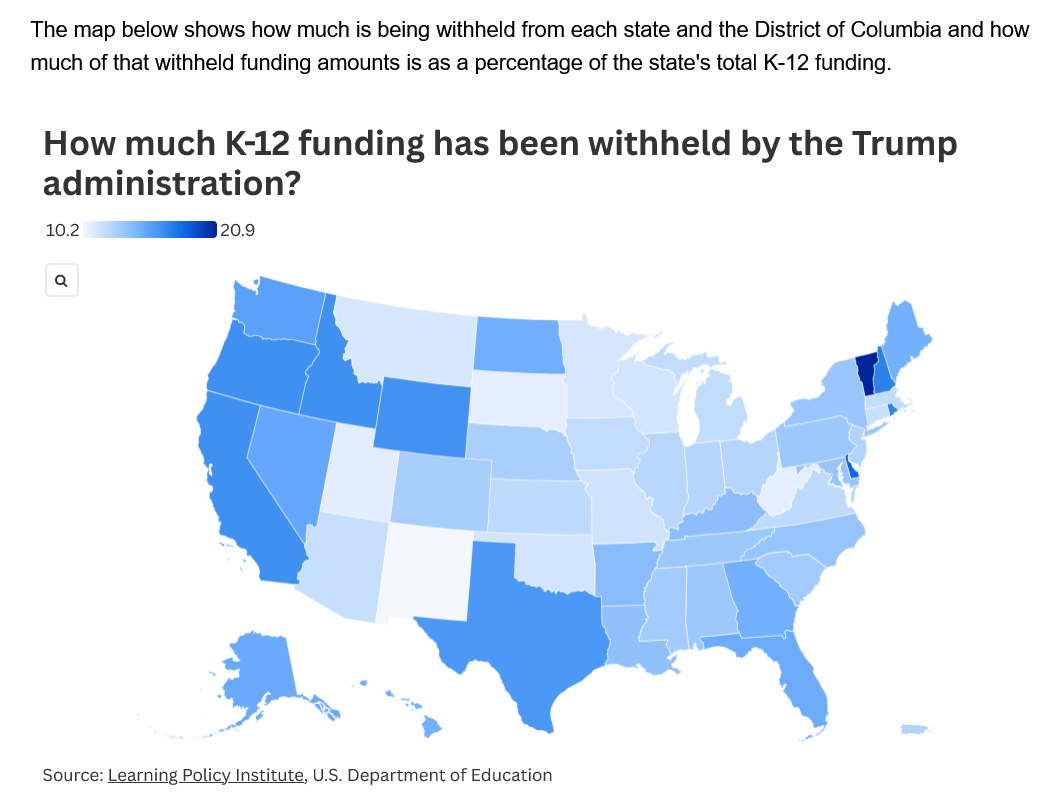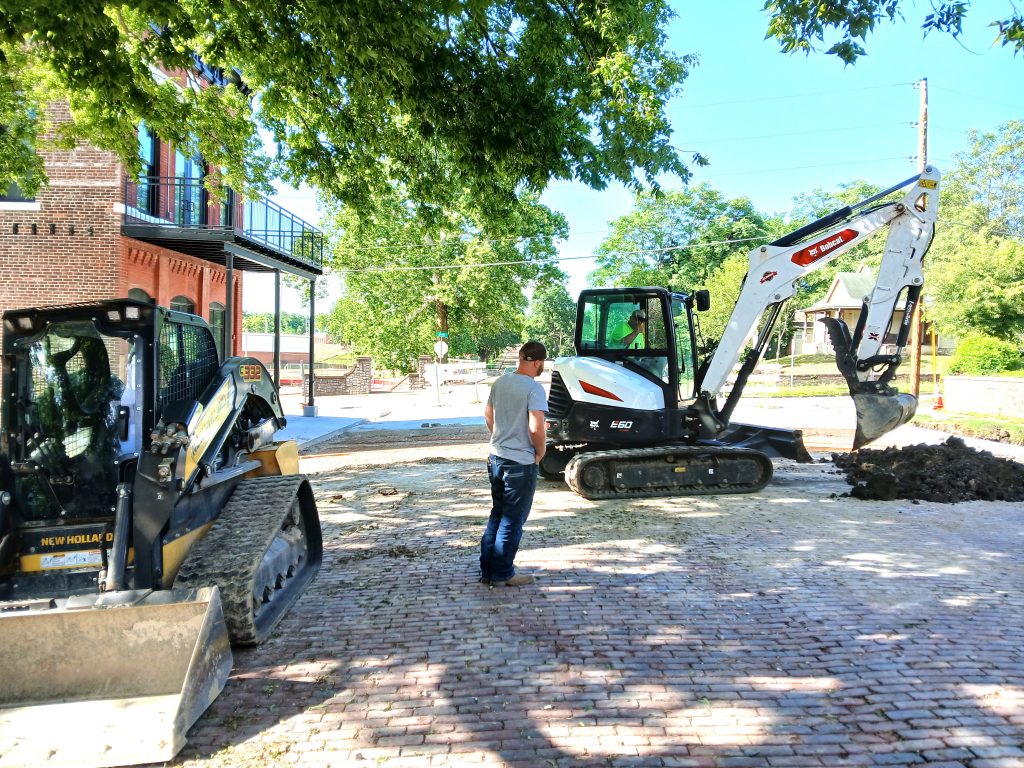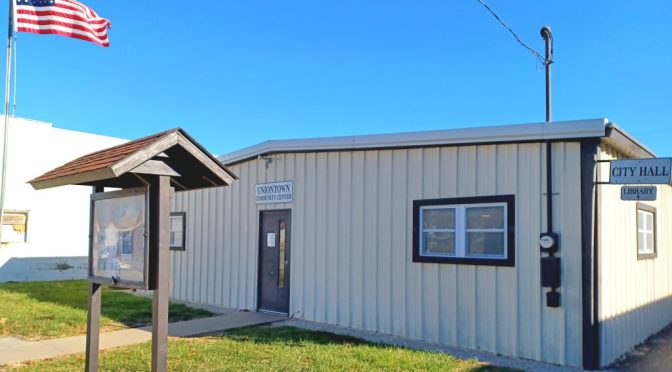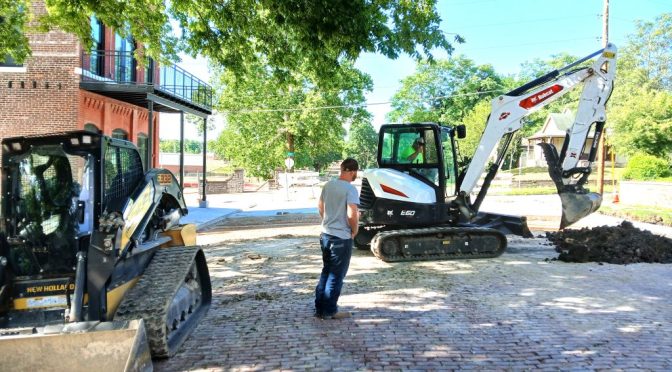|
Category Archives: Government
FSCC Trustees Meet July 10 For A Special Meeting
The Fort Scott Community College Board of Trustees will hold a special meeting at noon on Thursday, July 10 in the Cleaver-Burris-Boileau Hall to address the RNR rate for the 2025-26 budget and approve personnel items.
Submitted by
Juley McDaniel
Director of Human Resources
Fort Scott Community College
Agenda Packet for the Uniontown City Council on July 10 at 7 p.m.
ROLL CALL: ___ Jess Ervin ___ Amber Kelly ___ Mary Pemberton ___ Savannah Pritchett ___ Bradley Stewart
SPECIAL CONSIDERATIONS/PROJECTS
CITIZENS REQUESTS
FINANCIAL REPORT
Sally Johnson – Financial reports
APPROVE CONSENT AGENDA
- Minutes of June 10, 2025 Regular Council Meeting
- June Treasurers Report, Monthly Transaction Report & June Accounts Payables
DEPARTMENT REPORTS
Codes Enforcement: Doug Coyan
202 4th St- Mowing and Overgrown Weeds
306 Washington St- Mowing and Overgrown Weeds
406 Fulton Street- Mowing and Overgrown Weeds (nuisance vehicle?)
405 Hill Street-letter sent to owner with requested repairs needed & mowing
Smith Estate-falling down shed & tin roof
Superintendent: Bobby Rich
Clerk Report: Danea Esslinger
Junk Vehicle Citation-Citation given on 6/13/25
Keys made for all Council Members
Dakota Harrison/Lilly Wright Final Bill not paid-CBK to collect?
Diehl, Banwart, Bolton, CPA-new audit agreement
KMGA Choose Director & Alternate-
COUNCIL & COMMITTEE REPORTS
Councilman Ervin –
Councilman Kelly –
Councilwoman Pemberton –
Councilwoman Pritchett –
Councilman Stewart–
Mayor Jurgensen –
OLD BUSINESS
SEED Grant – have received all supplies ordered, and some work is complete, but still an ongoing project for
the City Library and City Office
FEMA Flooding–Ag Engineering did stop the Hydrology Study. Conference call with Carlise Jones, new FEMA Project
Manager, he stated will send the mitigation project on to be approved or disapproved without the Engineer Hydrology Study.
Sidewalk-Letter sent to Rainbow Organic Farms, but not picked up, another letter sent to owner’s home address.
Park electric –Kelly Electric will work on this project soon.
NEW BUSINESS
Motion by _____________, Second by __________, Approved ______, to enter into executive session pursuant to non-elected personnel exception, KSA 75-4319(b)(1), in order to discuss performance of non-elected personnel, the open meeting to resume at ____________.
Attachments:
How Federal Education Funding Freeze Will Effect U235 School District
All American schools, including local schools, will be impacted by the funding freeze that President Trump has directed the U.S. Department of Education to delay, pending a review.

USD235 Superintendent Vance Eden remains hopeful that the Trump administration will unfreeze funds, enabling schools to continue operations as authorized by Congress, he said.
- Title IIA- These funds can be used to reduce class sizes and were initially used to add a teacher, and that position has continued to be paid with Title II funds. Our allocation for the coming year is $25,222. While not all funds the district receives can be used for teacher salaries, this can and has been a meaningful part of our budget and the goal of maintaining a quality salary schedule. The removal of this funding stream will make it more difficult to continue this practice.
- Title IVA- These funds can’t be used on people and but instead are used primarily on safety and security items and also things that “extend the curriculum.” Our next year allocation was set at $17,492. While most are likely unaware if anything in their classroom has been purchased with these funds, the reality is that probably all of them have had some benefit. I manage these funds and purchase qualifying items throughout the school year as teachers submit requisitions that can qualify. As an example, field trips, science experiment supplies, digital cameras for the yearbook team, a pottery wheel, the window display at WBE, and a good chunk of the smartboards in the district are all things that have been purchased with these funds over the past few years. These funds invite creativity and foster a robust and quality learning experience. Losing these funds directly impacts our ability to maintain this commitment in the future without cutting from other areas or increasing the mill levy (which no one wants).
- Title IVB- These funds pay for the WBE after-school program and summer program. Without this allocation, the district will not be able to afford to continue to offer this to students and parents.
US Senator

Roger Marshall – (R)
PO Box 1588
Great Bend, KS 67530
(202) 224-4774

Jerry Moran – (R)
PO Box 1372
Pittsburg, KS 66762
(620-232-2286


Work Continues on the Street Corner at 6th and Main

Fort Scott Public Works Department staff were preparing for a concrete pour at the corner of 6th and Main Streets today.
The project is expected to be completed by the end of July, unless other issues are identified.
The project was on the list for work, but water issues at the Neice building, which is being renovated, sped up the timeline.
A staff person said water was pooling in the street corner, which was leaking into the Neice building.
Revised Agenda for the Bourbon County Commission Meeting Today, July 7
BOURBON COUNTY,
KANSAS
Bourbon County, Kansas
Bourbon County Commission Agenda
Bourbon County Commission Chambers, 210 S National Ave.
July 07, 2025, 5:30 PM (Revised)
I. Call Meeting to Order
Roll Call
Pledge of Allegiance
Prayer
II. Approval of Agenda
III. Approval of Minutes from 06.30.25 & 07.01.25
IV. Consent Agenda
Approval of 06.24.25 Accounts Payable Totaling $110,518.99
V. Public Hearing 5:35 Plaster Road Closing
VI. Pursuant to KSA 75-4319 (b)(1) to discuss personnel matters of individual nonelected personnel to
protect their privacy.
VII. Old Business
Zoning Advisory Board – Milburn
Fence Viewing Resolution – Beerbower
Juvenile Detention– Beerbower
Stronghold Update – Milburn
Housing agreement with Johnson County – Beerbower
Ealyn Taylor – Animal Control – Beerbower
Public Works Safety Audit – Dr. Cohen
Cameras – Beerbower
VIII. Public Comments for Items Not on The Agenda
IX. New Business
Resolution for the Cancellation of Outstanding Checks – Susan Walker
KAC Convention – Beerbower
Audit Agreement for Fiscal Year Ending 2025
Policy & Procedures – Beerbower
X. Commission Comments
XI. Adjournment
Future business that has been tabled in past meetings or planned for future meetings:
Economic Development Direction
911 Agreement
Precinct Legal Resolution
Doherty Health Benefits review – Executive Session August 2025
NRP Update July 14th
Courthouse Repairs August 4th
EXECUTIVE SESSIONS – FORM OF MOTION
____ Pursuant to KSA 75-4319 (b)(1) to discuss personnel matters of individual nonelected personnel to protect their
privacy
____ Pursuant to KSA 75-4319 (b)(2) for consultation with an attorney for the public body of agency which would be
deemed privileged in the attorney-client relationship
____ Pursuant to KSA 75-4319 (b)(3) to discuss matters relating to employer/employee negotiations whether or not in
consultation with the representatives of the body or agency
____ Pursuant to KSA 75-4319 (b)(4) to discuss data relating to financial affairs or trade secrets of corporations,
partnerships, trust, and individual proprietorships
____ Pursuant to KSA 75-4319 (b)(6) for the preliminary discussion of acquisition of real estate
____ Pursuant to KSA 75-4319 (b)(12) to discuss matters relating to security measures, if the discussion of such matters
at an open meeting would jeopardize such security measures
The subject to be discussed during executive session: ________________________________________
State persons to attend
Open session will resume at _____ A.M./P.M. in the commission chambers.
The Bourbon County Commission Agenda Packet For July 7
The Bourbon County Commission will meet on Monday, July 7, 2025, at 5:30 PM in the Commission Chambers located in the Bourbon County Courthouse, 210 S. National Avenue. This meeting is open to the public.
In addition, the Budget Advisory Committee will meet on July 9, 2025, at 4:30 PM in the Commission Chambers located in the Bourbon County Courthouse, 210 S. National Avenue. This meeting is open to the public.
Susan E. Walker, Bourbon County Clerk
BOURBON COUNTY,
KANSAS
Bourbon County, Kansas
Bourbon County Commission Agenda
Bourbon County Commission Chambers, 210 S National Ave.
July 07, 2025, 5:30 PM
I. Call Meeting to Order
Roll Call
Pledge of Allegiance
Prayer
II. Approval of Agenda
III. Approval of Minutes from 06.30.25 & 07.01.25
IV. Consent Agenda
Approval of 06.24.25 Accounts Payable Totaling $110,518.99
V. Public Hearing 5:35 Plaster Road Closing
VI. Old Business
Juvenile Detention– Beerbower
Housing agreement with Johnson County – Beerbower
Ealyn Taylor – Animal Control – Beerbower
Public Works Safety Audit – Dr. Cohen
Cameras – Beerbower
VII. Public Comments for Items Not on The Agenda
VIII. New Business
Resolution for the Cancellation of Outstanding Checks – Susan Walker
KAC Convention – Beerbower
Audit Agreement for Fiscal Year Ending 2025
Policy & Procedures – Beerbower
IX. Commission Comments
X. Adjournment
Future business that has been tabled in past meetings or planned for future meetings:
Economic Development Direction
911 Agreement
Precinct Legal Resolution
Doherty Health Benefits review – Executive Session August 2025
NRP Update July 14th
Courthouse Repairs August 4th
EXECUTIVE SESSIONS – FORM OF MOTION
____ Pursuant to KSA 75-4319 (b)(1) to discuss personnel matters of individual nonelected personnel to protect their
privacy
____ Pursuant to KSA 75-4319 (b)(2) for consultation with an attorney for the public body of agency which would be
deemed privileged in the attorney-client relationship
____ Pursuant to KSA 75-4319 (b)(3) to discuss matters relating to employer/employee negotiations whether or not in
consultation with the representatives of the body or agency
____ Pursuant to KSA 75-4319 (b)(4) to discuss data relating to financial affairs or trade secrets of corporations,
partnerships, trust, and individual proprietorships
____ Pursuant to KSA 75-4319 (b)(6) for the preliminary discussion of acquisition of real estate
____ Pursuant to KSA 75-4319 (b)(12) to discuss matters relating to security measures, if the discussion of such matters
at an open meeting would jeopardize such security measures
The subject to be discussed during executive session: ________________________________________
State persons to attend
Open session will resume at _____ A.M./P.M. in the commission chambers.
Selection Criteria: Vendor =
Bank =
Batch =
Due Date = 7/3/2025
Invoice Date =
Invoice Invoice Amt
Open Invoices By Department Summary Bourbon County
PO Purchase DescriptionVendor Name Account Charged
00Dept: Non-Departmental
016Fund: APPRAISERS
$64.35APPRAISER CONTRACTUAL
SVCS
6116237908 ACCT#00010 APPRAISER PHONES 5/18-6/17VERIZON WIRELESS
1Fund: 016 – APPRAISERS Invoice Count and Total: $64.35
027Fund: GENERAL EQUIPMENT RESERVE FUN
$8,992.80EXPENSE
DISBURSEMENT
INV046008 EQUIPMENT FOR FREEMAN HOSPITAL
FORT SCOTT
CASSLING
($2,709.46)EXPENSE
DISBURSEMENT
RTN007063 RETURN FOR INVOICE#INV045990 FOR
EQUIPMENT MOVING
CASSLING
2Fund: 027 – GENERAL EQUIPMENT RESERVE FUND Invoice Count and Total: $6,283.34
062Fund: ELECTION
$30.23ELECTION CONTRACTUAL
SVCS
075135 FUEL REIMBURSEMENT FOR ELECTION
TRAINING IN ERIE
SUSAN WALKER
1Fund: 062 – ELECTION Invoice Count and Total: $30.23
064Fund: EMPLOYEE BENEFIT
$875.00CONTRACTUAL SERVICESINV-38587 QUARTERLY 7/25-9/25LUCET
1Fund: 064 – EMPLOYEE BENEFIT Invoice Count and Total: $875.00
108Fund: LANDFILL
$234.21LANDFILL COMMODITIES0198-360420 FILTERS #154O’REILLY AUTO PARTS
$7,776.77LANDFILL CONTRACTUAL SVCS31450 MSW 6/12 – 6/18/25ALLEN COUNTY PUBLIC WORKS
$5,925.96LANDFILL CONTRACTUAL SVCS31464 MSW 6/20 – 6/25/25ALLEN COUNTY PUBLIC WORKS
$46.47LANDFILL COMMODITIES433445 FUEL TRANSFER HOSE #154LOCKWOOD MOTOR SUPPLY, INC.
$90.54LANDFILL COMMODITIES433702 OIL FILTER/FUEL-WATER SEPARATOR #154LOCKWOOD MOTOR SUPPLY, INC.
Page 1 of 137/2/2025 3:30:52 PM
AmberOperator:Report ID: APLT24B
Invoice Invoice Amt
Open Invoices By Department Summary Bourbon County
PO Purchase DescriptionVendor Name Account Charged
00Dept: Non-Departmental
108Fund: LANDFILL
$75.00LANDFILL CONTRACTUAL SVCS8426 PORTA POTTY RENTALSKITCH’S HAULING&EXCAVATION INC
6Fund: 108 – LANDFILL Invoice Count and Total: $14,148.95
220Fund: ROAD AND BRIDGE
($5.00)ROAD & BRIDGE COMMODITIES0198-356866 CORE RETURNO’REILLY AUTO PARTS
$144.34ROAD & BRIDGE COMMODITIES0198-356948 BELTS #151O’REILLY AUTO PARTS
$154.19ROAD & BRIDGE COMMODITIES0198-356950 BELTS #151O’REILLY AUTO PARTS
$7.63ROAD & BRIDGE COMMODITIES0198-360046 6/20/25 RELAY #145O’REILLY AUTO PARTS
($9.93)ROAD & BRIDGE COMMODITIES0198-360067 GREASE UNION RETURNO’REILLY AUTO PARTS
$279.99ROAD & BRIDGE COMMODITIES0198-360601 REFRIGERANTO’REILLY AUTO PARTS
$391.37ROAD & BRIDGE COMMODITIES0198-360722 COOLANT HOSES/OIL/ANTI FREEZ #196O’REILLY AUTO PARTS
$17.08ROAD & BRIDGE COMMODITIES0198-360730 HOSE CLAMPS/OIL #196O’REILLY AUTO PARTS
$233.30ROAD & BRIDGE COMMODITIES0198-360788 RADIATOR #196O’REILLY AUTO PARTS
($195.57)ROAD & BRIDGE COMMODITIES0198-360795 RADIATOR RETURNO’REILLY AUTO PARTS
$27.54ROAD & BRIDGE COMMODITIES0198-360798 AIR FILTERS #9O’REILLY AUTO PARTS
$49.27ROAD & BRIDGE COMMODITIES0198-360881 OIL FILTER/OIL #10O’REILLY AUTO PARTS
$59.01ROAD & BRIDGE COMMODITIES0198-360882 AIR FILTER/WIPER BLADE #10O’REILLY AUTO PARTS
$75.98ROAD & BRIDGE COMMODITIES0198-360970 WIPER BLADES #10O’REILLY AUTO PARTS
($43.18)ROAD & BRIDGE COMMODITIES0198-360990 WIPER BLADES RETURNO’REILLY AUTO PARTS
$44.99ROAD & BRIDGE COMMODITIES0198-360995 LEAK DETECTORO’REILLY AUTO PARTS
$382.83ROAD & BRIDGE COMMODITIES0198-361467 MANIFOLD GASKET/FUEL INJECTOR #190O’REILLY AUTO PARTS
$885.00ROAD & BRIDGE COMMODITIES09P60210 VALVE BODY #155TRI-STATE TRUCK CENTER, INC
$61.46ROAD & BRIDGE COMMODITIES12842021 WHEEL SPEED SENSOR #85HERITAGE TRACTOR, INC.
$1,252.13ROAD & BRIDGE COMMODITIES2462098 6/3/25 ACTUATOR #198MURPHY TRACTOR & EQUIPMENT CO
$79.40ROAD & BRIDGE COMMODITIES36266 BLADE/GLASS CLEANER/TOWELS #14IOLA AUTO PARTS, LLC
$1,365.00ROAD & BRIDGE COMMODITIES39059 TILT CYLINDER #201MID AMERICA HYDRAULIC REPAIR, INC.
Page 2 of 137/2/2025 3:30:52 PM
AmberOperator:Report ID: APLT24B
Invoice Invoice Amt
Open Invoices By Department Summary Bourbon County
PO Purchase DescriptionVendor Name Account Charged
00Dept: Non-Departmental
220Fund: ROAD AND BRIDGE
$200.77ROAD & BRIDGE COMMODITIES433551 HOSES/COUPLINGS #M85LOCKWOOD MOTOR SUPPLY, INC.
$75.54ROAD & BRIDGE COMMODITIES50561 TOWELS/GLASS CLEANER/FUEL
TREATMENT GRADER
IOLA AUTO PARTS, LLC
$1,651.17LEASE – PRINCIPAL59617-7-2025 2021 SANY PAYMENTKS STATEBANK
$566.02ROAD & BRIDGE COMMODITIES60-0875442 ADVANCE GR-A1 TIRES T148HESSELBEIN TIRE OF OKLAHOMA
$40.01ROAD & BRIDGE
CONTRACTUAL SVC
6115683107 BILL SUMMARY 5/11 – 6/10/25 ACCT00003VERIZON WIRELESS
$4.49ROAD & BRIDGE COMMODITIES70383 1/8 X 2-1/2 FLAT X 3JUDY’S IRON & METAL, INC.
$150.00ELM CREEK CONTRACTUAL8426 PORTA POTTY RENTALSKITCH’S HAULING&EXCAVATION INC
$245.00ROAD & BRIDGE
CONTRACTUAL SVC
8426 PORTA POTTY RENTALSKITCH’S HAULING&EXCAVATION INC
$56.33ROAD & BRIDGE
CONTRACTUAL SVC
9127625636 6/23/25 ELECTRIC AT SHOP (NORTH BUILDING)EVERGY
31Fund: 220 – ROAD AND BRIDGE Invoice Count and Total: $8,246.16
222Fund: ROAD & BRIDGE SALES TAX FUND
$75.00R&B SALES TAX
CONTRACTUAL SVCS
8426 PORTA POTTY RENTALSKITCH’S HAULING&EXCAVATION INC
1Fund: 222 – ROAD & BRIDGE SALES TAX FUND Invoice Count and Total: $75.00
257Fund: SHRF TRUST FORFEITURE 7/1/19
$1,398.00CONTRACTUAL SERVICES17007 3 DAY CRIMINAL INTERDICTION
WORKSHOP
RELENTLESS LLC
1Fund: 257 – SHRF TRUST FORFEITURE 7/1/19 Invoice Count and Total: $1,398.00
387Fund: ADDICTION SETTLEMENT FUND
$230.30CAPITAL OUTLAY7/1/25 MILEAGE:329@$0.70/MILEPATH OF EASE ASSOCIATION
1Fund: 387 – ADDICTION SETTLEMENT FUND Invoice Count and Total: $230.30
45Dept: 00 – Non-Departmental Invoice Count and Total: $31,351.33
Page 3 of 137/2/2025 3:30:52 PM
AmberOperator:Report ID: APLT24B
Invoice Invoice Amt
Open Invoices By Department Summary Bourbon County
PO Purchase DescriptionVendor Name Account Charged
01Dept: COUNTY COMMISSION
001Fund: GENERAL FUND
$2,500.00COMMISSION CONTRACTUAL
SVCS
47883 NETWORK ASSESSMENTSTRONGHOLD DATA LLC
$130.49COMMISSION CONTRACTUAL
SVCS
6116237909 ACCT#00011 COMMISSION PHONES 5/18-
6/17
VERIZON WIRELESS
2Fund: 001 – GENERAL FUND Invoice Count and Total: $2,630.49
2Dept: 01 – COUNTY COMMISSION Invoice Count and Total: $2,630.49
Page 4 of 137/2/2025 3:30:52 PM
AmberOperator:Report ID: APLT24B
Invoice Invoice Amt
Open Invoices By Department Summary Bourbon County
PO Purchase DescriptionVendor Name Account Charged
07Dept: COURTHOUSE MAINTENANCE
001Fund: GENERAL FUND
$260.05GENERAL COMMODITIES1663353736 TRASH BAGS/FOOD BAGS/GORILLA
TAPE/PAPER TOWELS
CAPITAL ONE
$617.82GENERAL COMMODITIES55791683-00 COND MTR/CAPACITOR OVAL/CAPACITOR
ROUND
LOCKE SUPPLY CO.
2Fund: 001 – GENERAL FUND Invoice Count and Total: $877.87
2Dept: 07 – COURTHOUSE MAINTENANCE Invoice Count and Total: $877.87
Page 5 of 137/2/2025 3:30:52 PM
AmberOperator:Report ID: APLT24B
Invoice Invoice Amt
Open Invoices By Department Summary Bourbon County
PO Purchase DescriptionVendor Name Account Charged
10Dept: DISTRICT COURT
001Fund: GENERAL FUND
$111.98DISTRICT COURT
COMMODITIES
566310-0 PAPERETTINGER’S
$1,900.00DISTRICT COURT
CONTRACTUAL SVC
7/1/25 JULY CONTRACTDOMONEY & DOMONEY
$2,100.00DISTRICT COURT
CONTRACTUAL SVC
7/1/25 (1) JULY CONTRACTGREGORY, GILBERT E
$1,900.00DISTRICT COURT
CONTRACTUAL SVC
7/1/25 (2) JULY CONTRACTGREGORY, GILBERT E
$600.00DISTRICT COURT
CONTRACTUAL SVC
7/1/25 (3) JULY CONTRACTGREGORY, GILBERT E
$1,900.00DISTRICT COURT
CONTRACTUAL SVC
7/1/25 JOSH JULY CONTRACT JOSHBASELEY LAW OFFICE LLC
$2,100.00DISTRICT COURT
CONTRACTUAL SVC
7/1/25 TERRA JULY CONTRACT TERRABASELEY LAW OFFICE LLC
7Fund: 001 – GENERAL FUND Invoice Count and Total: $10,611.98
7Dept: 10 – DISTRICT COURT Invoice Count and Total: $10,611.98
Page 6 of 137/2/2025 3:30:52 PM
AmberOperator:Report ID: APLT24B
Invoice Invoice Amt
Open Invoices By Department Summary Bourbon County
PO Purchase DescriptionVendor Name Account Charged
11Dept: EMERGENCY PREPAREDNESS
001Fund: GENERAL FUND
$155.08EM. PREP. CONTRACTUALSVCS203755 7/1/25 EM MGMT:VOIP/INTERNET/CABLE/VOICE
SERVICES
CRAW-KAN TELEPHONE CO.
1Fund: 001 – GENERAL FUND Invoice Count and Total: $155.08
1Dept: 11 – EMERGENCY PREPAREDNESS Invoice Count and Total: $155.08
Page 7 of 137/2/2025 3:30:52 PM
AmberOperator:Report ID: APLT24B
Invoice Invoice Amt
Open Invoices By Department Summary Bourbon County
PO Purchase DescriptionVendor Name Account Charged
15Dept: I T
001Fund: GENERAL FUND
$2,681.49I/T CONTRACTUAL SVCS203755 7/1/25 COURTHOUSE:VOIP/INTERNET/CABLE/VOIC
E SERVICES
CRAW-KAN TELEPHONE CO.
$74.13I/T CONTRACTUAL SVCS6116237903 ACCT#00002 I/T PHONES 5/18-6/17VERIZON WIRELESS
$56,140.00I/T CONTRACTUAL SVCSPSI40874 ANNUAL PEOPLEWARE AGREEMENTCIC
3Fund: 001 – GENERAL FUND Invoice Count and Total: $58,895.62
3Dept: 15 – I T Invoice Count and Total: $58,895.62
Page 8 of 137/2/2025 3:30:52 PM
AmberOperator:Report ID: APLT24B
Invoice Invoice Amt
Open Invoices By Department Summary Bourbon County
PO Purchase DescriptionVendor Name Account Charged
24Dept: AMBULANCE SERVICE
375Fund: AMBULANCE SERVICE
$300.00VEHICLE MAINTENANCE0001706 EMS#1 TOWDAVE’S TOWING & RECOVERY
$159.58VEHICLE MAINTENANCE0198-360769 EMS#1 OIL/OIL FILTERO’REILLY AUTO PARTS
$77.27VEHICLE MAINTENANCE0198-360810 EMS#1 OIL/OIL FILTERO’REILLY AUTO PARTS
($159.58)VEHICLE MAINTENANCE0198-360824 EMS#1 OIL/OIL FILTER RETURNSO’REILLY AUTO PARTS
$372.32TELEPHONE EXPENSES205355 7/1/25 EMS CABLE/VOICE SERVICESCRAW-KAN TELEPHONE CO.
$478.71ELECTRICITY-UTILITIES9079952521 6/27/25 405 S WOODLAND HILLS BLVDEVERGY
6Fund: 375 – AMBULANCE SERVICE Invoice Count and Total: $1,228.30
6Dept: 24 – AMBULANCE SERVICE Invoice Count and Total: $1,228.30
Page 9 of 137/2/2025 3:30:52 PM
AmberOperator:Report ID: APLT24B
Invoice Invoice Amt
Open Invoices By Department Summary Bourbon County
PO Purchase DescriptionVendor Name Account Charged
30Dept: NOXIOUS WEED
200Fund: NOXIOUS WEED
$4,345.90CHEMICALS236505 CHEMICALSVAN DIEST SUPPLY COMPANY
1Fund: 200 – NOXIOUS WEED Invoice Count and Total: $4,345.90
1Dept: 30 – NOXIOUS WEED Invoice Count and Total: $4,345.90
Page 10 of 137/2/2025 3:30:52 PM
AmberOperator:Report ID: APLT24B
Invoice Invoice Amt
Open Invoices By Department Summary Bourbon County
PO Purchase DescriptionVendor Name Account Charged
43Dept: COURTHOUSE GENERAL
001Fund: GENERAL FUND
$62.89CONTRACTUAL
SERVICES
08-2093-01 6/27/25 108 W 2ND STCITY OF FT SCOTT UTILITIES DPT
$330.20CONTRACTUAL
SERVICES
08-2227-01 6/27/25 210 S NATIONAL AVECITY OF FT SCOTT UTILITIES DPT
$29.33CONTRACTUAL
SERVICES
1217143248 6/27/25 STREET LIGHTSEVERGY
3Fund: 001 – GENERAL FUND Invoice Count and Total: $422.42
3Dept: 43 – COURTHOUSE GENERAL Invoice Count and Total: $422.42
Page 11 of 137/2/2025 3:30:52 PM
AmberOperator:Report ID: APLT24B
Invoice Invoice Amt
Open Invoices By Department Summary Bourbon County
PO Purchase DescriptionVendor Name Account Charged
$110,518.99Grand Total:70Invoice Count by Dept:
Open Invoices – Dept/Fund. Totals
Dept Fund Amount
00 Non-Departmental
$64.35016 APPRAISERS
$6,283.34027 GENERAL EQUIPMENT RESERVE FU
$30.23062 ELECTION
$875.00064 EMPLOYEE BENEFIT
$14,148.95108 LANDFILL
$8,246.16220 ROAD AND BRIDGE
$75.00222 ROAD & BRIDGE SALES TAX FUND
$1,398.00257 SHRF TRUST FORFEITURE 7/1/19
$230.30387 ADDICTION SETTLEMENT FUND
$31,351.33
01 COUNTY COMMISSION
$2,630.49001 GENERAL FUND
$2,630.49
07 COURTHOUSE MAINTENANCE
$877.87001 GENERAL FUND
$877.87
10 DISTRICT COURT
$10,611.98001 GENERAL FUND
$10,611.98
Page 12 of 137/2/2025 3:30:53 PM
AmberOperator:Report ID: APLT24B
Invoice Invoice Amt
Open Invoices By Department Summary Bourbon County
PO Purchase DescriptionVendor Name Account Charged
11 EMERGENCY PREPAREDNESS
$155.08001 GENERAL FUND
$155.08
15 I T
$58,895.62001 GENERAL FUND
$58,895.62
24 AMBULANCE SERVICE
$1,228.30375 AMBULANCE SERVICE
$1,228.30
30 NOXIOUS WEED
$4,345.90200 NOXIOUS WEED
$4,345.90
43 COURTHOUSE GENERAL
$422.42001 GENERAL FUND
$422.42
$110,518.99Grand Total:
Page 13 of 137/2/2025 3:30:53 PM
AmberOperator:Report ID: APLT24B
RESOLUTION _______
BOURBON COUNTY, KANSAS
VACATION OF ROAD
WHEREAS, the Board of Bourbon County Commissioners of Bourbon County, Kansas, has proposed to
vacate a road pursuant to K.S.A. 68-102; and
WHEREAS, the vacation request is located in Hiattville, Kansas, and is described as follows:
60’ road of 128 th between lot 5 sub of lot 1 block 8 & lot 2 of block 8, Hiattville, Kansas.
WHEREAS, notice of said proposed vacation has been given by the County Clerk as required by K.S.A. 68-
102; and
WHEREAS, pursuant to K.S.A. 68-102, the Board of County Commissioners is given authority to vacate;
and
WHEREAS, said vacation consists of less than two consecutive miles, as required by statute.
NOW THEREFORE be it resolved by the Bourbon County Kansas Board of Commissioners, 60’ road of
128 th between lot 5 sub of lot 1 block 8 & lot 2 of block 8, Hiattville, Kansas be hereby vacated.
BE IT FURTHER RESOLVED that the Commission hereby instructs the County Clerk to publish this
resolution for two consecutive weeks in the Fort Scott, Tribune and a certified copy of this resolution is
to be filed and recorded in the office of Register of Deeds and with the Office of Public Works of
Bourbon County, Kansas.
BE IT RESOLVED this _________ day of _____________, 2025 by the BOURBON COUNTY
COMMISSIONERS.
BOURBON COUNTY COMMISSIONERS OF
BOURBON COUNTY, KANSAS
Attest: ________________________________
Mika Milburn-Kee, Commissioner
___________________________ ________________________________
Susan E. Walker, County Clerk David Beerbower, Chairman
________________________________
Samuel Tran, Commissioner
RESOLUTION _______
BOURBON COUNTY, KANSAS
Cancellation of Warrants
WHEREAS, K.S.A. 19-320 states whenever any county warrant, issued to any person, remain in the office
of the county clerk unclaimed for a period of three years from the date thereof, such warrant shall be
returned by him to the board of county commissioners and canceled.
WHEREAS, the list of checks are older than three years totaling $9,550.31.
NOW THEREFORE be it resolved by the Bourbon County Kansas Board of Commissioners:
Request that the County Clerk cancel the listed checks totaling $9,550.31 that are older than three years
from the date of this resolution.
BE IT RESOLVED this _________ day of _____________, 2025 by the BOURBON COUNTY
COMMISSIONERS.
________________________________
David Beerbower, Chairman
Attest: ________________________________
Mika Milburn-Kee, Commissioner
___________________________ ________________________________
Susan E. Walker, County Clerk Sam Tran, Commissioner
Check
Number Date Vendor Amount
Check
Number Date Vendor Amount
505990 03/30/18 DOUGLAS COUNTY CORRECTIONS 50.00$ 513839 01/29/21 TRANSLATIONPERFECT.COM 280.00$
506067 04/04/18 BOURBON COUNTY CLERK 25.00$ 514059 03/12/21 ATTORNEY GENERAL’S OFFICE 225.00$
507195 08/17/18 O’BRIEN ROCK CO. 300.00$ 514098 03/12/21 GALEN C BIGELOW, JR. 645.00$
507729 10/26/18 MERCY KANSAS 49.00$ 514437 04/23/21 TRANSLATIONPERFECT.COM 420.00$
508228 01/04/19 LAWRENCE, JOSHUA 16.00$ 514443 04/23/21 WEST PAYMENT CENTER 1,137.00$
508801 03/15/19 MCKAY, SARAH JO 6.48$ 514535 05/07/21 TODD A NORRIS 269.14$
509967 08/02/19 NEW JERSEY MOTOR VEHICLE COMM 15.00$ 514646 05/21/21 TODD A NORRIS 269.14$
510077 08/16/19 KRUGER, AUSTIN 8.33$ 514876 07/02/21 CWDAK 125.00$
510520 10/11/19 SKYLIGHT FINANCIAL 10.00$ 515008 07/16/21 J & W SPORTS SHOP 48.00$
511419 02/14/20 TRANSLATIONPERFECT.COM 442.50$ 515194 08/13/21 KANSAS ASSOC.OF COURT SVC.OFF. 135.00$
511480 02/28/20 KANSAS ASSOC.OF COURT SVC.OFF. 270.00$ 515291 08/27/21 KANSAS ASSOC.OF COURT SVC.OFF. 135.00$
511654 03/27/20 DEPT OF MOTOR VEHICLES 5.00$ 515430 09/10/21 RUDDICK’S, INC. 200.00$
512248 06/19/20 FORT SCOTT QUIK LUBE 78.74$ 515614 10/08/21 KELLER, JEFFREY M 72.92$
512736 08/28/20 KEY INDUSTRIES, INC. 113.88$ 515993 12/03/21 CAPITAL ONE 447.02$
512898 09/25/20 DURATECH, USA, INC. 254.27$ 516269 01/14/22 CULLIGAN OF JOPLIN 211.97$
513253 11/06/20 TEAHOUSE VISUALS 300.00$ 516270 01/14/22 CWDAK 300.00$
513361 11/20/20 RYAN’S GARAGE 572.00$ 516722 03/11/22 DUROSSETTE’S TIRE SERVICE 250.00$
513405 12/04/20 GIRARD TARPS INC 17.90$ 516913 03/25/22 TEXAS DEPARTMENT OF PUBLIC SAFETY 10.00$
513431 12/04/20 MILLER FEED & OIL 33.93$ 516943 04/08/22 BTX KS INC 24.78$
513599 12/31/20 KANSAS SENTENCING COMMISSION 230.00$ 517232 05/06/22 KULLY SUPPLY 17.00$
513608 12/31/20 MURPHY TRACTOR & EQUIPMENT CO 877.50$ 517338 05/20/22 TEXAS DEPARTMENT OF PUBLIC SAFETY 10.00$
517517 06/17/22 JOPLIN TRAILER SALES INC. 642.11$
ACH 05/20/22 AUBREY HAWPE 0.70$
9,550.31$
KS Commerce Launches New Chapter of Kansas Community Empowerment Program
|
Meet the Bourbon County Republican Party Chairperson, Kaety Bowers
![]()
Faith, Family, Freedom
Submitted by Gregg Motley
One must spend very little time with Kaety Bowers to discern the drive, the leadership skills, and the passion that motivates her every day. Behind those desirable qualities is a person who earned her stripes through hard knocks, failure, and the faith to get back up again and keep trying. How did this capable party chairperson transition from a small Western Kansas town in a home led by a single mother to leadership in Bourbon County?
Anyone with a pulse and a social media account in Bourbon County knows how difficult the political arena has been inside the county and some its incorporated towns. Disagreements on weighty issues facing us, along with questionable choices and methods displayed by some of our elected officials have left a significant number of local voters jaded and cynical. Into that maelstrom stepped Kaety Bowers to preside over a party that was struggling to recruit good candidates and support those in office.
Perhaps it was her challenging early years that gave her the courage and confidence to step into the role. Ms. Bowers excelled in school, so much so that she earned a full-ride scholarship to the University of Kansas. Fate had another destiny for her, as marriage at a young age, motherhood and a desire to serve others in the beauty industry changed her course. During her career in the industry, she noticed that unlicensed operators were victimizing those in unfortunate circumstances, such as cancer patients, over-charging them and giving them poor results. Ms. Bowers took her concerns to the state capital and fought for regulation and licensing for these unscrupulous vendors. She learned to navigate the halls of the capital, and a political career was born.
Political success requires a drive that is committed to principles that form the core of a person, and Bowers is an excellent example of this truism. To a mother who is raising a family, education is a critical element of the development of her young charges. When the large school district in which her family lived began to make questionable choices, Bowers became an organizer of parents who wanted to make a difference. The process helped her hone her leadership skills, and her passion for the issues led her to a successful run for school board of this giant district, eventually ascending to the role of vice president of the board. She soon began consulting with Republican Party leaders and helping political candidates with their campaigns.
It was natural for Bowers to get involved in party politics when her family recently moved to Bourbon County. Republican Party members soon recognized the drive, leadership and passion possessed by Ms. Bowers and selected her for Chairperson of the party in 2024. Soon after taking office, she was faced with redistricting to add two county commissioners, the resignation of two existing commissioners and the inevitable strife that results from leadership voids. Bowers has met the challenges by consulting with past leaders, seeking the advice of those who are currently active and calling upon her years of experience.
Bowers has a vision for the future of Bourbon County, which centers around our youth. Her desire is to engage youth leaders in schools and other organizations to educate and inspire our young people to engage pollical activities and get personally involved. Bowers notes that she was blessed to have faith-based mentors as a youth and into her young adult years to guide her into productive, caring choices that have motivated her involvement over the years. She would like to see concerned citizens of Bourbon County fill that role for our young people. Her plan is to create active roles for youth in our political structures, provide scholarships for deserving achievers, and get them involved and voting.
As for the future of struggling rural communities, Bowers points to technology and leveraging the resources we have. We must ask the question, “Why do people move here and why do people stay?” We must understand why people choose a Bourbon County lifestyle and invest in making it better. We must create structures that encourage ideas, creativity and dreams. If we do not, we will be passed by and devolve into more complaining and backbiting. We must work together on these issues.
In the end, it is all about the faith which informs us, the family which motivates and supports us, and the love of freedom which keeps us working together. With these core values, Bowers has used her drive, leadership skills and passion to cast a bigger, better vision for Bourbon County.
State of Kansas v. Dawson James Mitchell in Bourbon County: Hard 50 Life Sentence Affirmed
|
|
|
|
|
|
|
|
|
New KS Law Prohibits Foreign Money in Constitutional Amendment Campaigns
Kobach nets big win on new Kansas law banning foreign money in campaigns
TOPEKA – (July 1, 2025) – A Kansas law that prohibits the use of foreign money in state constitutional amendment campaigns is in effect today, July 1, thanks to a court win by Kansas Attorney General Kris Kobach.
U.S. District Court Judge Daniel Crabtree blocked a request from Kansans for Constitutional Freedom for a preliminary injunction to stop the state from implementing the ban on foreign money flowing into political campaigns.
“Judge Crabtree’s opinion is well reasoned and thorough. The Kansas Legislature acted constitutionally when it addressed the specific problem of foreign nationals funneling money into referendum campaigns on Kansas constitutional amendments,” Kobach said. “The people of Kansas have the right to decide these important questions for themselves without any foreign influence. Foreign nationals should not be influencing Kansas elections, period. This is a win for Kansas.”
In his ruling, Crabtree writes that Kansans for Constitutional Freedom is likely to lose its constitutional challenge to the new law.
Read Crabtree’s order here.
KS State Legislature Cuts State General Fund
|






